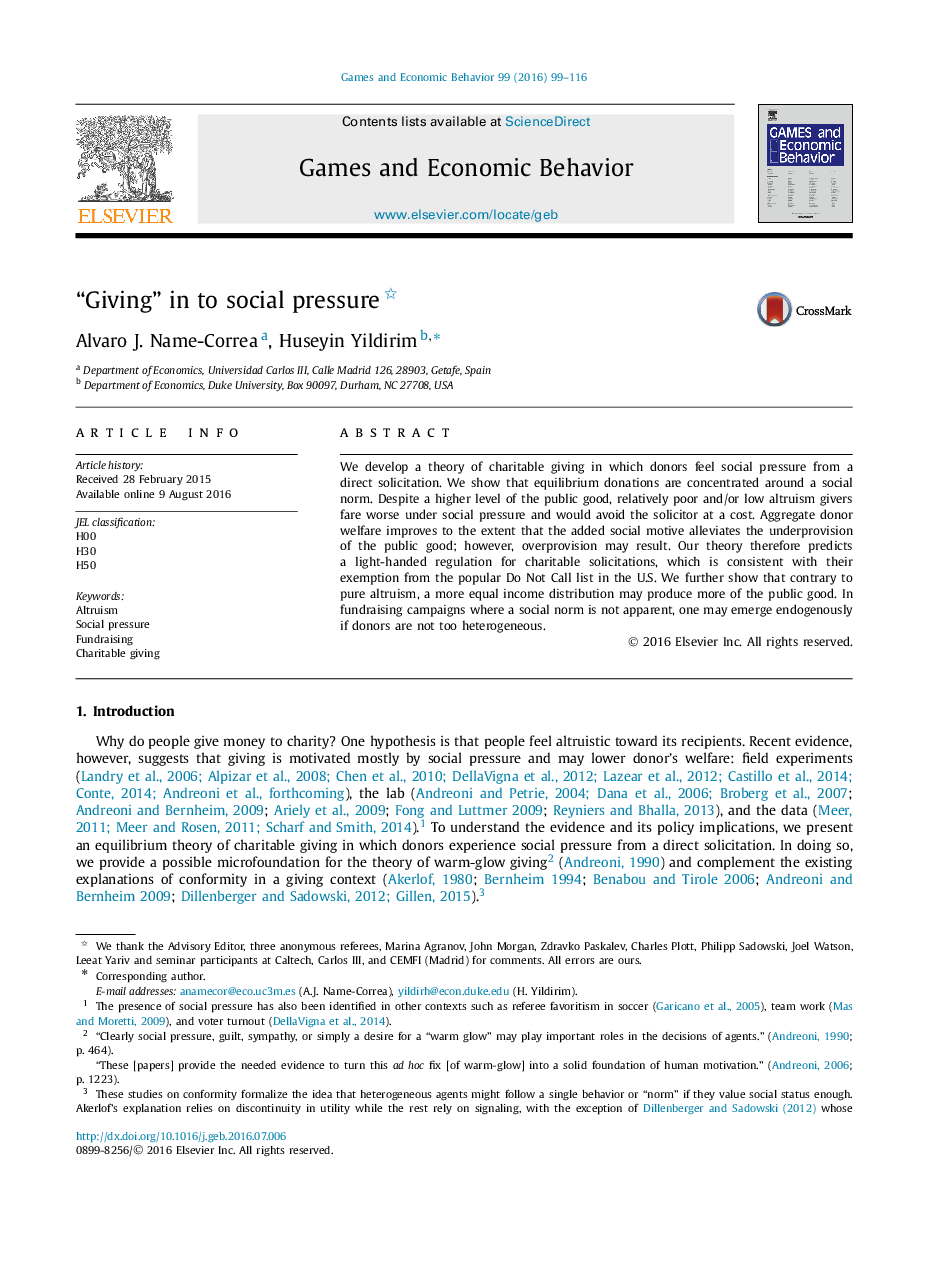| Article ID | Journal | Published Year | Pages | File Type |
|---|---|---|---|---|
| 5071511 | Games and Economic Behavior | 2016 | 18 Pages |
Abstract
We develop a theory of charitable giving in which donors feel social pressure from a direct solicitation. We show that equilibrium donations are concentrated around a social norm. Despite a higher level of the public good, relatively poor and/or low altruism givers fare worse under social pressure and would avoid the solicitor at a cost. Aggregate donor welfare improves to the extent that the added social motive alleviates the underprovision of the public good; however, overprovision may result. Our theory therefore predicts a light-handed regulation for charitable solicitations, which is consistent with their exemption from the popular Do Not Call list in the U.S. We further show that contrary to pure altruism, a more equal income distribution may produce more of the public good. In fundraising campaigns where a social norm is not apparent, one may emerge endogenously if donors are not too heterogeneous.
Related Topics
Social Sciences and Humanities
Economics, Econometrics and Finance
Economics and Econometrics
Authors
Alvaro J. Name-Correa, Huseyin Yildirim,
